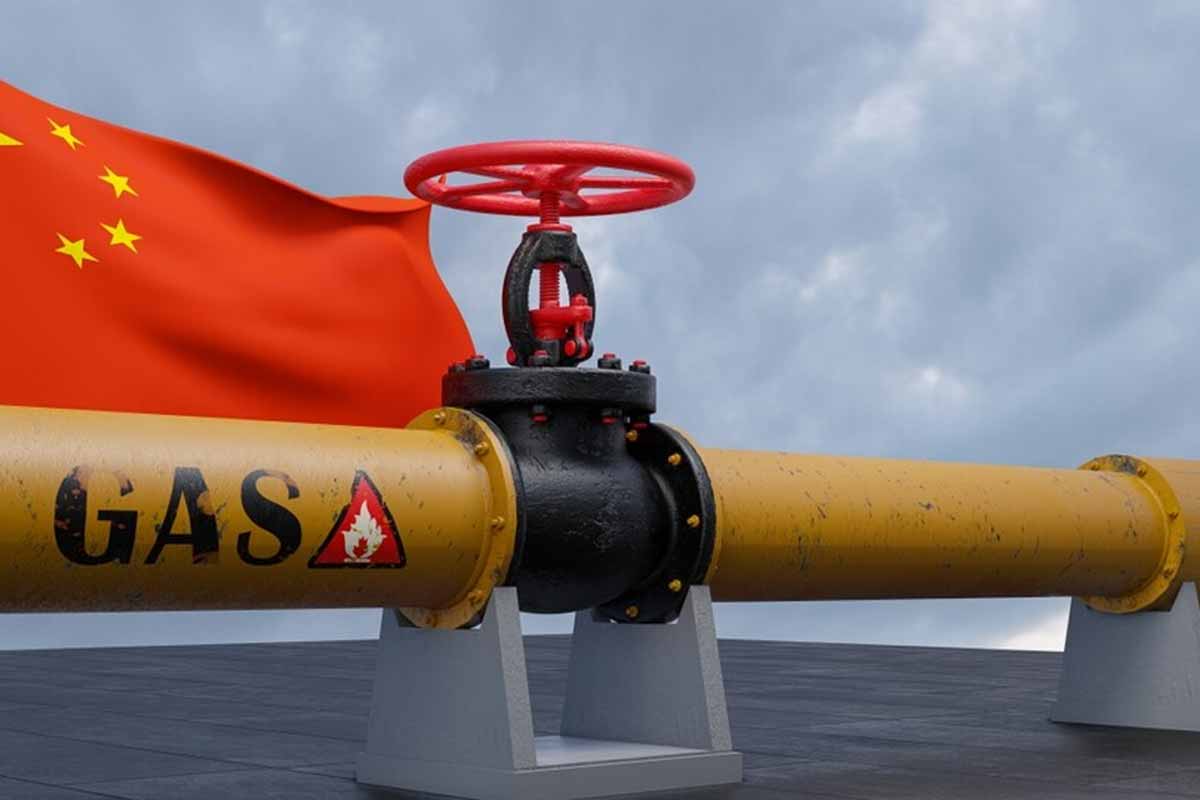Sidestepping is the word on everyone’s lips, and not for dance lessons. Tariffs fly, tempers rise, and energy markets twitch like live wires. China and the United States stare each other down while Europe shivers. You can feel winter breathing on the back of the neck.
Tariffs, LNG, and a nervous winter
Washington slapped steep duties on Chinese goods, and Beijing answered in kind. LNG landed on the list, which stung both trade and tempers. Across the map, Europe faces an energy squeeze sharpened by the war in Ukraine. Russian gas fell from favor, storage ran thin, and nerves went thinner. Germany’s reserves slipped to about seven percent, a number that rattled cabinets. Every headline sounded like a warning siren, long and flat. China read the room and studied its own demand curve, which had softened. Cargoes looked better on someone else’s balance sheet than idling at home.
So the ships pivoted west, chasing buyers with bare cupboards. In a single move, Beijing eased pressure at home and gained leverage abroad. That’s sidestepping the tariff wall with a merchant’s grin and a navigator’s calm. It’s not charity; it’s trade with sharp elbows and open eyes. Every sale writes a small footnote in a big ledger. Those footnotes add up to policy before anyone names it. Europe exhaled, just a little, while screens on trading desks cooled a shade. Still, no one in Brussels slept with both eyes closed.
Sidestepping
There’s a reason the word keeps showing up in conversations that matter. China isn’t just selling spare molecules; it’s recutting the board. When domestic consumption dips, those contracted LNG volumes turn into tools. A locked-in supply becomes optionality, and optionality turns into influence. Cargo by cargo, Beijing resets relationships without signing a treaty. Operators in Shanghai dial shipping routes like guitar strings, chasing spread and season. European buyers see relief and risk in the same invoice. Relief is heat in January and fewer price spikes. Risk is leaning on a middleman when the wind shifts.
The choreography looks simple from afar, yet it’s stitched by daily calls. Traders juggle tides, port slots, and weather maps that lie by lunchtime. Every detour earns headlines and fresh talking points in parliaments. This is sidestepping as strategy, not stunt work at sea. Push here, give there, and let the market echo your move. A neat trick when sanctions snarl and politics crowd the wheelhouse. It’s still trade, just with a longer shadow and a louder stage.
Europe’s lifeline, Europe’s question
For Europe, those redirected cargoes arrive like warm air under a closed door. Storages refill, power markets quiet down, and factories plan with steadier hands. Households worry less about sudden, punishing bills at breakfast. City by city, the winter map looks survivable again. Yet dependence doesn’t vanish; it changes shape and address. An intermediary adds resilience in one season and fragility in the next. Europe knows this story; it lived it with pipelines and late-night negotiations. Short-term comfort tastes sweet and a little salty. Policy folks talk about diversification while watching the day’s ship tracker.
They weigh spot buys against long contracts that handcuff next year. They ask whether resilience means more suppliers or fewer moving parts. Storage helps, demand response helps, and weather helps when it’s kind. None of that replaces a long, steady plan that actually holds. The question hangs in the air like frost. How do you keep the lights on without teaching yourself new bad habits? Some answers involve sidestepping immediate pain and building something sturdier behind it. That path needs budgets, patience, and fewer slogans on microphones.
A map that keeps moving
Global energy trade rarely sits still, and crisis pushes it into stranger shapes. Sanctions, war, and tariffs redraw the routes like fresh chalk on asphalt. Countries that adapt quickly don’t just survive; they bargain better. Supply follows confidence, not just price, and confidence loves clarity. China’s resale play shows how fast a buyer becomes a broker. It turns surplus into leverage, and leverage into quiet favors banked for later. Allies notice. Rivals notice. Markets shout it before the ink dries. Every rerouted ship says, the center of gravity is learning new steps. Someone builds a new terminal, someone else builds a new rulebook. That’s sidestepping old dependencies while testing fresh ones. The game isn’t to win a week; it’s to shape the decade. Europe can use this breathing room to invest in tougher bones. More storage, smarter grids, and gas only where it truly belongs.
Industry can squeeze waste, and homes can sip instead of gulp. American and Asian suppliers will court the same ports with different smiles. Bridges will get built and burned, sometimes in the same quarter. Amid the noise, one truth keeps tapping the window.Energy security is made at the tempo of investment, not the tempo of headlines. That tempo rewards sidestepping when storms hit and straight walking when the road is clear. It also punishes drift, which loves committees and long lunches. The Chinese play redefines who calls whom first when markets shake. It sketches new alliances with a calculator, not a parade.
Some will cheer the ingenuity. Some will warn about traps disguised as life rafts. Both are right in their way, and both will argue again next winter. What matters is whether today’s quick feet buy time for tomorrow’s sturdier legs. If they do, everyone wins a little, and the map gets kinder. If they don’t, we end up teaching the same lesson twice. Either way, the ships keep moving, and the world keeps learning. Call it sidestepping with purpose, or just trade finding its rhythm again. What you can’t call it anymore is accidental.
